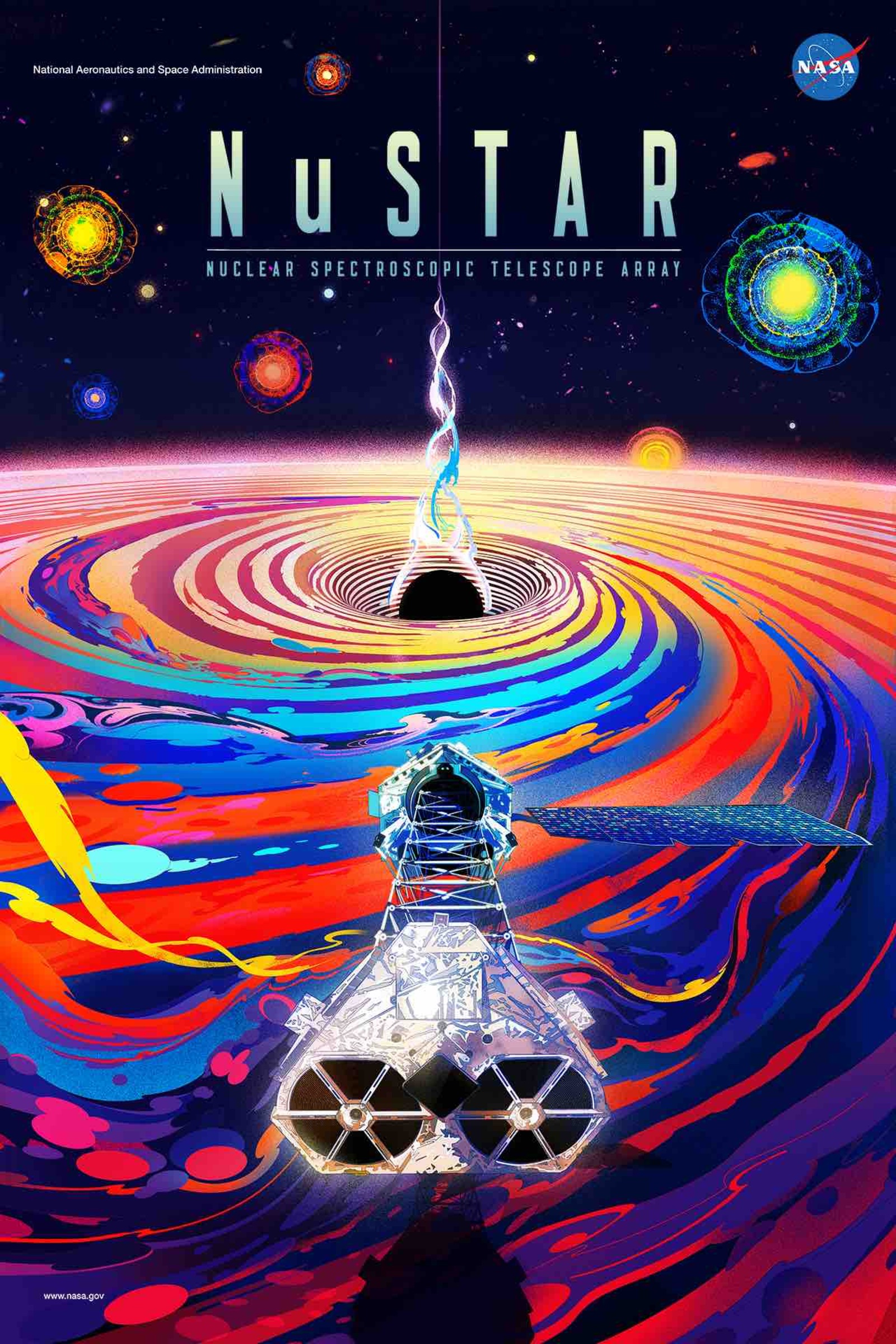
NuSTAR Celebrates 10 Years of Operations
Article
|
nustar220609

The Nuclear Spectroscopic Telescope Array, or NuSTAR, complements NASA’s other astrophysics missions studying the universe in various spectra by observing the cosmos in high energy X-rays.
The observatory’s unique design includes a lightweight mast, which deployed to its full length of 10 meters (33 feet) after the observatory reached Earth orbit following its launch on June 13, 2012. Typically, researchers point one of NuSTAR’s bulky ends – which contains the optics, or the hardware that collects X-rays – at the object they want to study. The light travels along the boom to the detectors, located at the other end of the spacecraft. The distance between the two is necessary to focus the light.
As the first space telescope capable of taking focused high energy X-ray observations, NuSTAR has provided an unprecedented view of high energy objects, such as remnants of supernova explosions, like black holes and neutron stars, as well as the monster black holes that live in the centers of galaxies. After a decade of operation, NuSTAR continues to open new horizons, discover fascinating objects, and expand our knowledge of the Universe.
Click here to go to the JPL news release
High resolution versions of this poster celebrating 10 years studying the X-ray Universe, suitable for printing, are available from NASA's JPL website.
Click here to go to the JPL webpage to download the poster
Click here to go to Caltech news release including celebration video